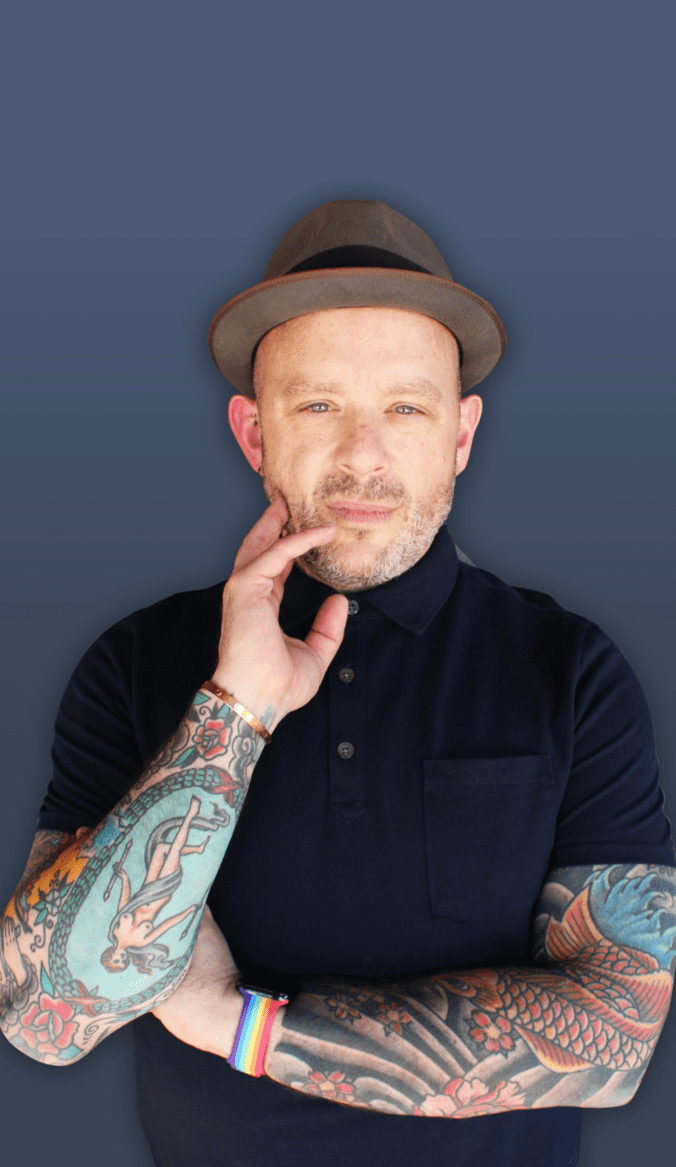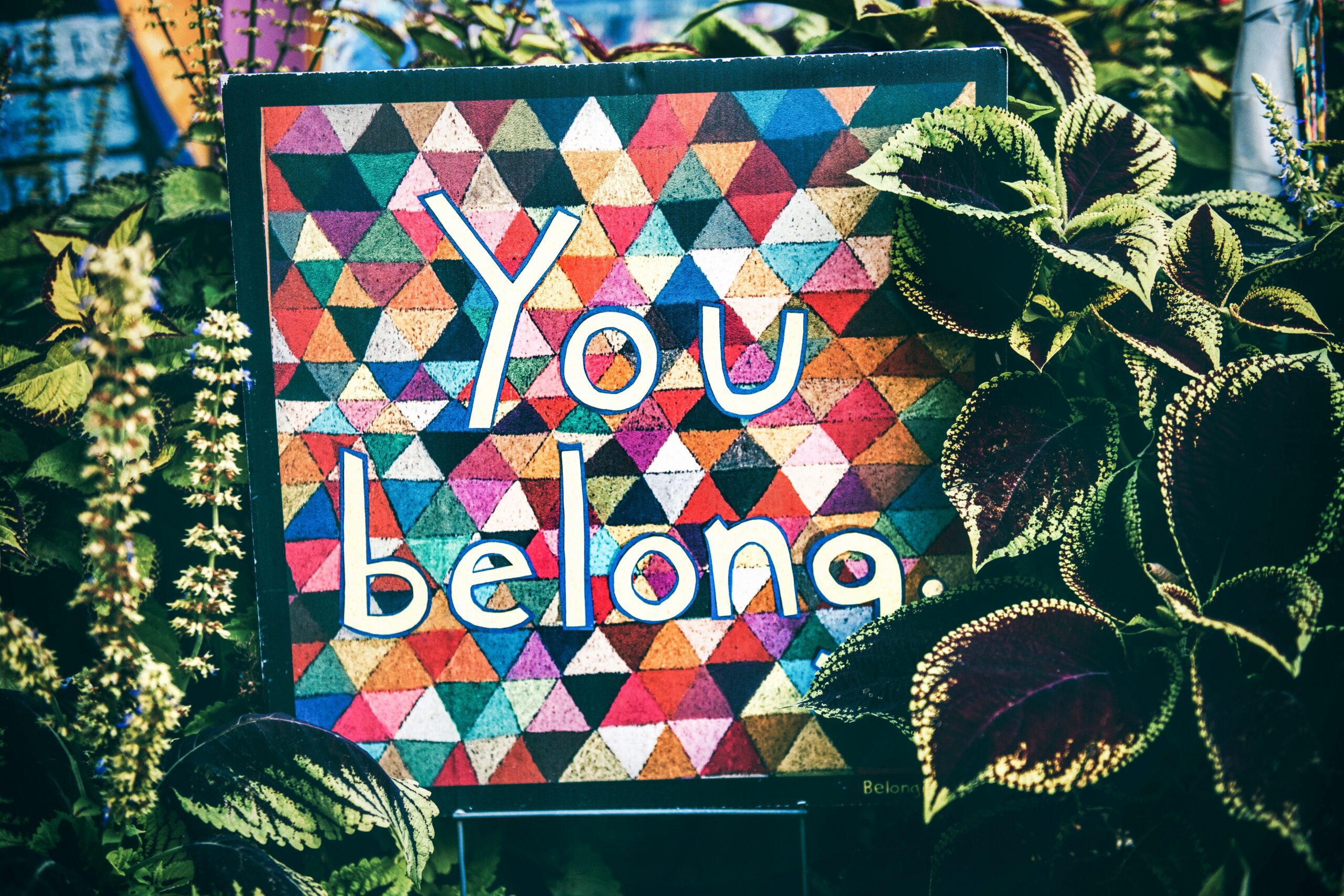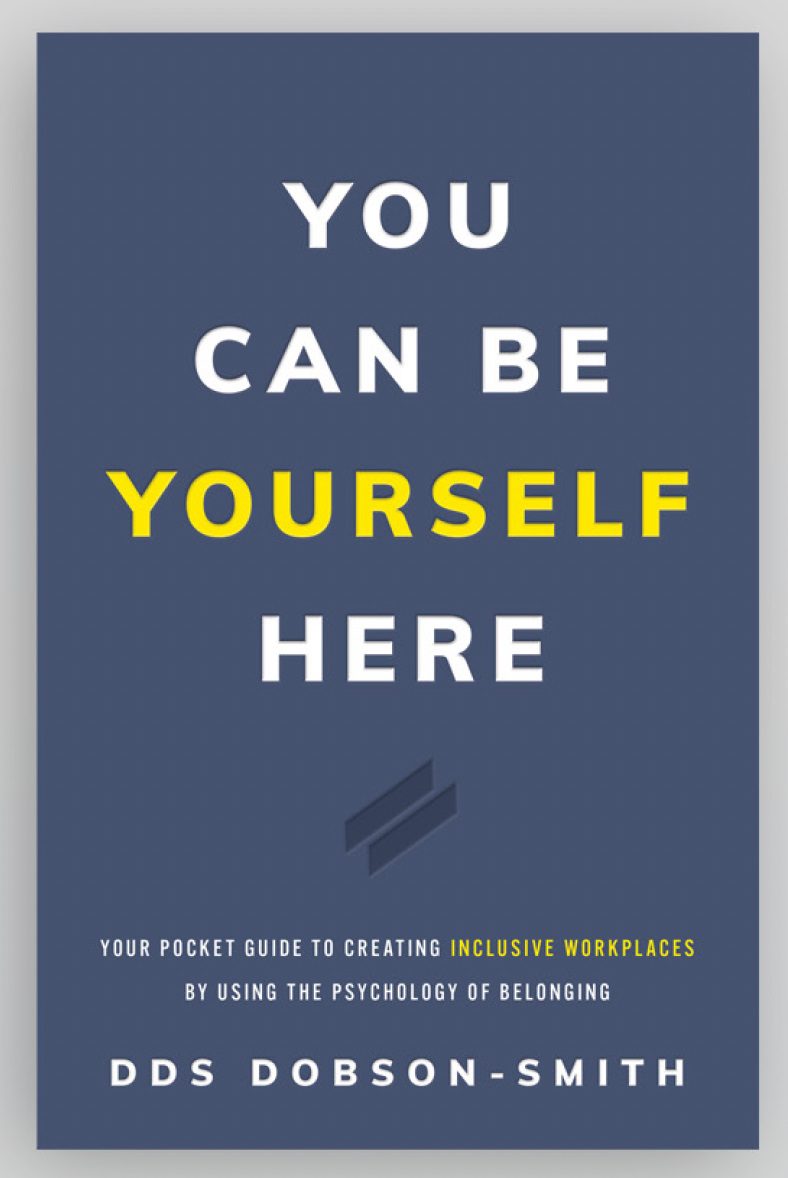You Can Be Yourself Here: Creating Inclusive Workplaces Through the Psychology of Belonging

with DDS Dobson-Smith (They & He)
Last month the podcast and blog focused on the evolution from inclusion to belonging with Lorne Rubis, co-founder of Belongify. I was inspired to continue diving deeper into this topic area, as Diversity, Equity, and Inclusion is an area we’ve been focusing more on at Humance, where we help develop knowledge and skills in leaders and employees across industries (such as through our micro-learning, virtual Inclusion Path).
In a quest to further explore Inclusion and Belonging, I had the opportunity to speak with DDS Dobson-Smith, who recently published You Can Be Yourself Here: Your Pocket Guide to Creating Inclusive Workplaces by Using the Psychology of Belonging. DDS brings an extensive career as a licensed therapist, author, executive coach, and speaker on leadership and growth, combined with their lived experience as a queer person who has had personal experience navigating belonging.
Tell us about yourself, DDS, and what led you to focus on belonging in the workplace?
Over their 25 years in various organizational roles, DDS learned the critical importance of people being able to be themselves. The majority group tends to be Caucasian, male, straight, cis-gender, and able bodied. If we have an aspect of our identity that’s not from the majority group, we can experience societal pressure to be someone else in order to fit in. As a queer person, DDS experienced this pressure along with the energy it takes to hide and suppress aspects of ourselves in order to fit in.
According to DDS, If people could work in a place where it was okay to be themselves, the energy to cover, code-switch, and suppress who they are would instead be available for work, relationships, and innovation. This led DDS to focus on belonging in the workplace.

“Belonging is the experience that we have when we walk into a place and we feel at home; it’s knowing that we are where we should be. We can’t experience belonging without inclusion.”
What is belonging, and how does it relate to diversity and inclusion?
Diversity and inclusion are said almost synonymously, according to DDS, yet they are different things. Diversity is a fact – an organization is or isn’t diverse when it comes to the people who work there. Inclusion is a set of behaviours, policies, processes, and platforms as well as the way we act, react, and interact with each other. Belonging is the experience that we have when we walk into a place and we feel at home; it’s knowing that we are where we should be. We can’t experience belonging without inclusion. However, diversity doesn’t always lead to inclusion and belonging.
Tell us about your recently published book: You Can Be Yourself Here: Your Pocket Guide to Creating Inclusive Workplaces by Using the Psychology of Belonging
DDS explains how they specifically wrote this book with professionals in mind (i.e., HR, founders, leaders). It’s jam-packed with accessible, practical insights and tools that a business can deploy to create a more diverse and inclusive space. Many people have said they have felt seen by the book, by the stories shared from other people that resonate, so it is a book for everyone.
What conditions are required to create a culture of belonging?
A culture is an articulation of the type of organization you want to be and the vibe you want to create for your people, according to DDS. In contrast, the climate is your people’s lived experience of the culture. The top thing that will make or break your climate of belonging is leadership behaviour; the extent to which those in power pay lip service to the importance of diversity/inclusion, or whether they actually do the work, makes all the difference.
The climate of any organization will be shaped by the worst behaviour you’re able to tolerate in your leaders. There are lots of tips in the book to help create a climate of belonging. A top requirement is that the leadership team must want to show up for diversity, inclusion, and belonging.
“The climate of any organization will be shaped by the worst behaviour you’re able to tolerate in your leaders.” – DDS Dobson-Smith
..What do you think of the great re-evaluation and how it’s changing people’s relationship with work and the importance of belonging?
Many people have been asking some deep existential questions: are they doing something in their career that they want to do? If their work isn’t bringing meaning and purpose and they feel they don’t belong in a workplace, people will vote with their feet and go elsewhere. DDS’s message to HR leaders and CEOs is that there isn’t a shortage of talent, but instead a greater level of discernment amongst talent. It’s the organizations that are able have a greater commitment to diversity, inclusion and belonging, and create work that brings meaning and purpose, that will be places people stay.
In your book you talk about how becoming an ally or an accomplice can help build a culture of belonging. Tell us what these terms look like in practice?
DDS describes these four stages in his book when it comes to our roles in helping to build cultures of belonging:
1) Bystander – a person who is present at an event or incident but not taking part,
2) Upstander: a person who speaks or acts in support of an individual or cause and intervenes on behalf of a person being attacked, overlooked or excluded,
3) Ally: a person from a non-marginalized group who uses their privilege to advocate for those who are excluded, and
4) Accomplice: a person from a non-marginalized group who uses their privilege to dismantle the structures that oppress an individual or group. For example, taking a look at your recruitment process; are you always looking at the places where people from marginalized groups may see the posting?
DDS’s book is full of practical insights and actionable strategies. You can find it here.
About DDS Dobson-Smith:

DDS Dobson-Smith is a licensed therapist, author, executive coach, speaker on leadership and growth, and a Reiki master — all in service of helping others grow and become who they are. They are the Founder and CEO of SoulTrained, an executive coaching and leadership growth consultancy. Their new book is called “You Can Be Yourself Here: Your Pocket Guide to Creating Inclusive Workplaces by Using the Psychology of Belonging”
DDS brings multi-sector global experience, decades of training in human potential, and enduring dedication to creating leaders who are worth following to everything they do.
They have notched up over 25 years of working in small, medium, and large corporations. They grew up in the hospitality industry and they started their career as a college professor teaching hotel and business management. They’ve since held a range of senior, executive, and C-Suite level roles across a host of sectors and companies.
DDS Dobson-Smith is certified as an Executive Coach by both the Chartered Institute of Personnel and Development and the Oxford School of Coaching & Mentoring. They are credentialed with the International Coach Federation, and are a coach-supervisor through the Coaching Supervision Academy.




